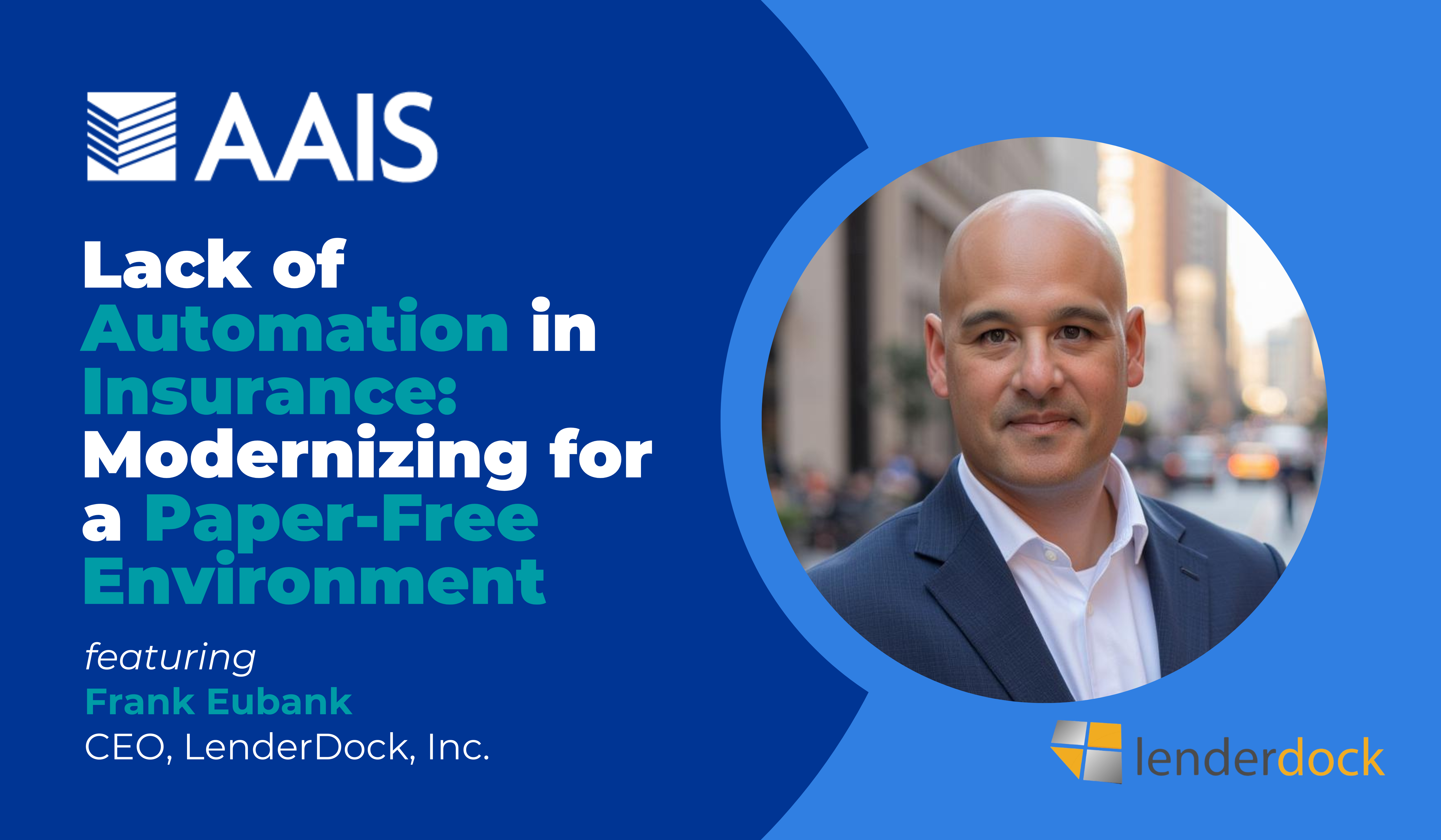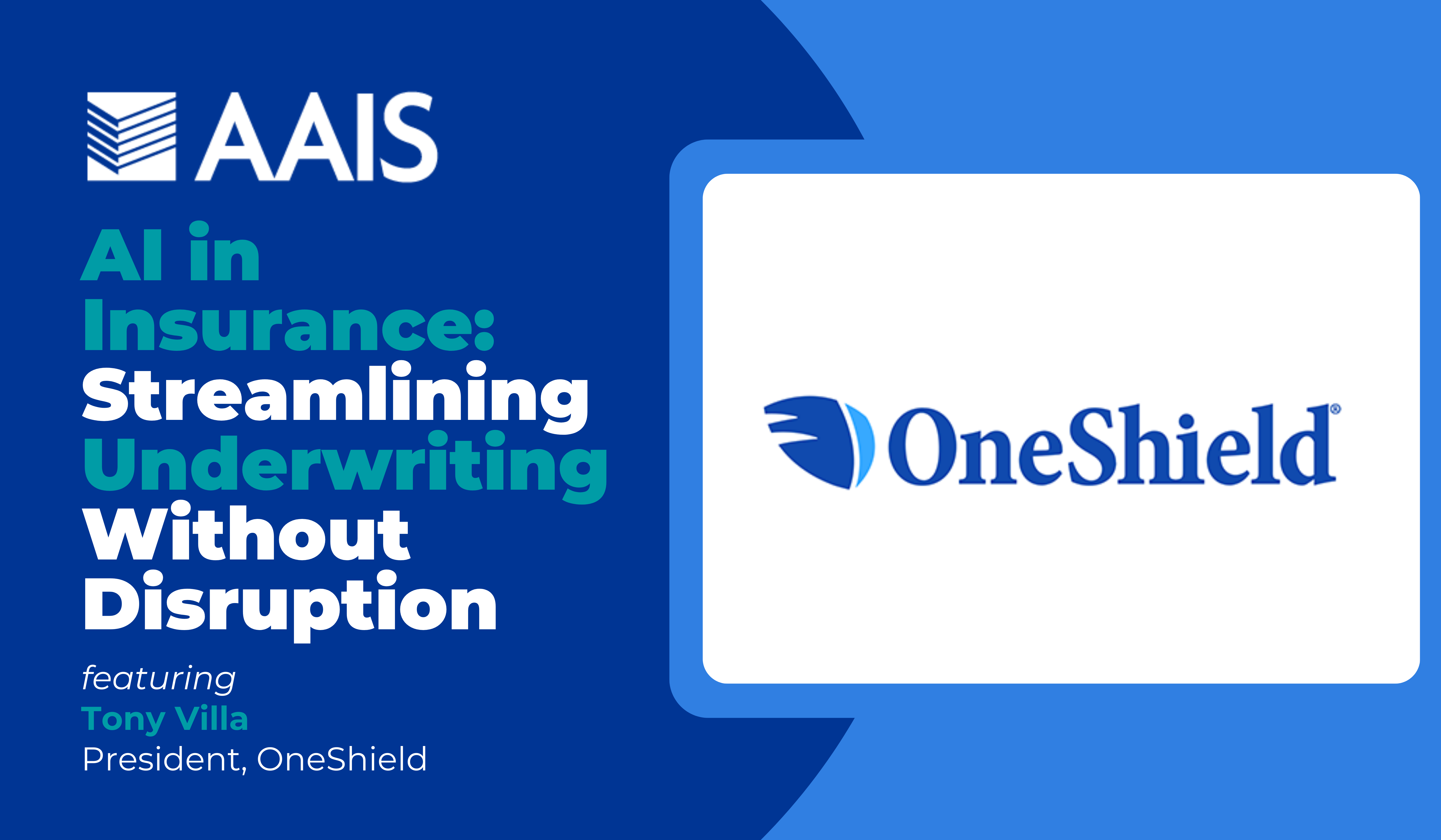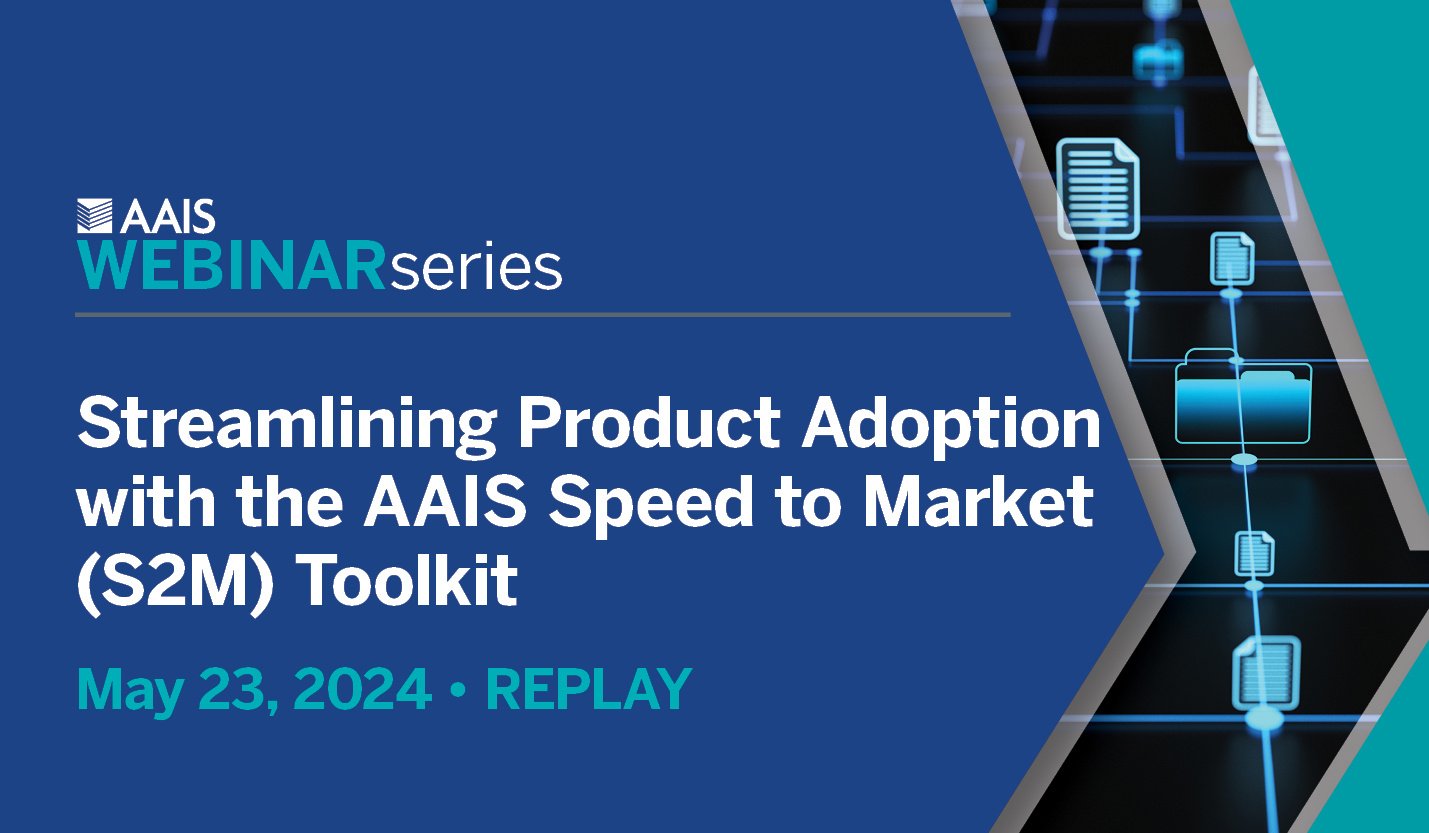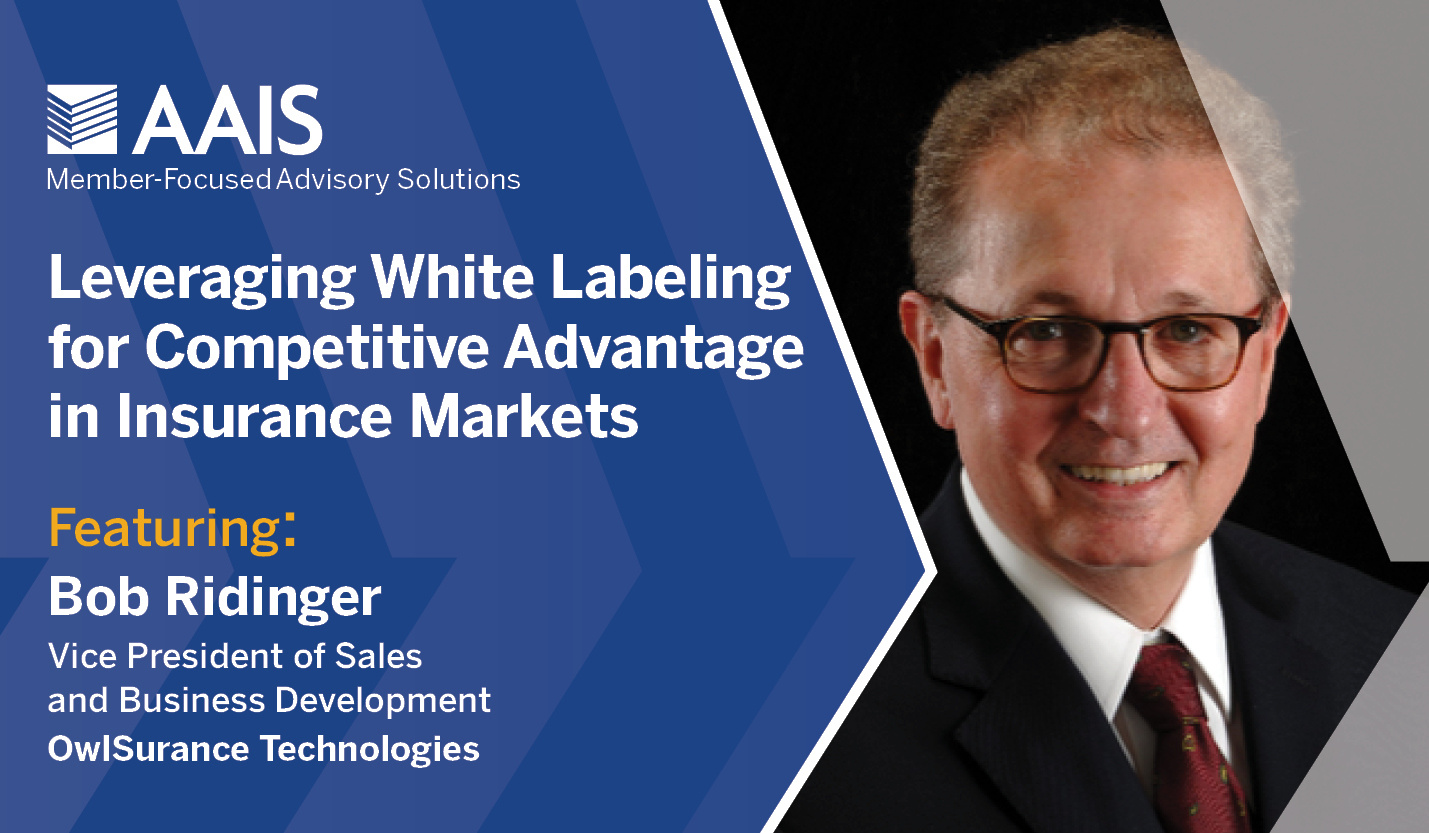Despite growing investments in digital transformation, many insurers still rely on paper-based workflows. From legacy systems and compliance concerns to aging customer bases, the road to modernization has been slow and uneven. Frank Eubank, CEO of LenderDock, offers a candid look at why paper persists—and how insurers can finally move past it.
Insurance Operations
Modernizing Automation in Insurance Toward a Paper-Free Future
May 21, 2025 / by AAIS posted in Insurance Operations, insurance automation, Legacy Systems, LenderDock
AI in Insurance: Streamlining Underwriting Without Disruption
Mar 14, 2025 / by AAIS posted in Technology, Machine Learning/AI, Data & Technology, Insurtech, Insurance Operations, Data/Tech, Underwriting, AI, Artificial Intelligence, OneShield
Artificial intelligence (AI) is reshaping the insurance industry, and successful adoption requires careful planning. Tony Villa, President of OneShield, shares key insights on how insurers can integrate AI to enhance efficiencies without disrupting operations.
Transform Insurance Product Launches with S2M Tools
Sep 25, 2024 / by AAIS posted in Insurance Operations, AAIS News & Views, Policy Administration, Mind Maps, S2M Toolkit
This article builds on our previous blog on the Speed to Market (S2M) Toolkit, where we discussed how the road to implementation can be fraught with IT implementation challenges. These challenges do not revolve around your developers or programmers; they often stem from the complex requirements of a new or updated product, such as detailed forms, endorsement attributes, precise rating information, and accurate premium calculation steps.
Accelerate Speed to Market with the AAIS S2M Toolkit
Jun 5, 2024 / by AAIS posted in Insurance Operations, AAIS Webinar Series, Policy Administration, Mind Maps, S2M Toolkit
The decision has been made. Your company’s leadership has determined now is the time to adopt a new product, to expand your company's offerings, and to do so quickly to take advantage of an opportunity in the market.
Leveraging White Labeling in the Insurance Industry
May 21, 2024 / by AAIS posted in Insights, Issues & Trends, Insurance Operations, Working in Insurance, AAIS Insights, OwlSurance
White labeling has emerged as a pivotal strategy for insurers to bolster brand presence while catering to the preferences of brokers and clients. In this interview with AAIS Partner, ValueMomentum, you’ll learn what makes white labeling effective, the benefits of utilizing the strategy, and the tools and principles that make it successful in the insurance industry. Part one of our two-part series features Bob Ridinger, Vice President of Sales and Business Development at OwlSurance Technologies, a business unit of ValueMomentum.
Mind Maps: The Organization Tool Transforming the AAIS Auto Program & Insurance Industry Alike
Jan 31, 2024 / by Ash Naik posted in Issues & Trends, Insurance Operations, Auto, Personal Auto, auto insurance, AAIS Auto Program, Mind Maps
Updating or creating new insurance products is generally expected to be a long and expensive endeavor for insurance carriers. Most insurance products are made with insurance experts in mind, which can be hard for technology teams to understand. Having a product analyst is essential to make these complex ideas clear and ready for implementation.






